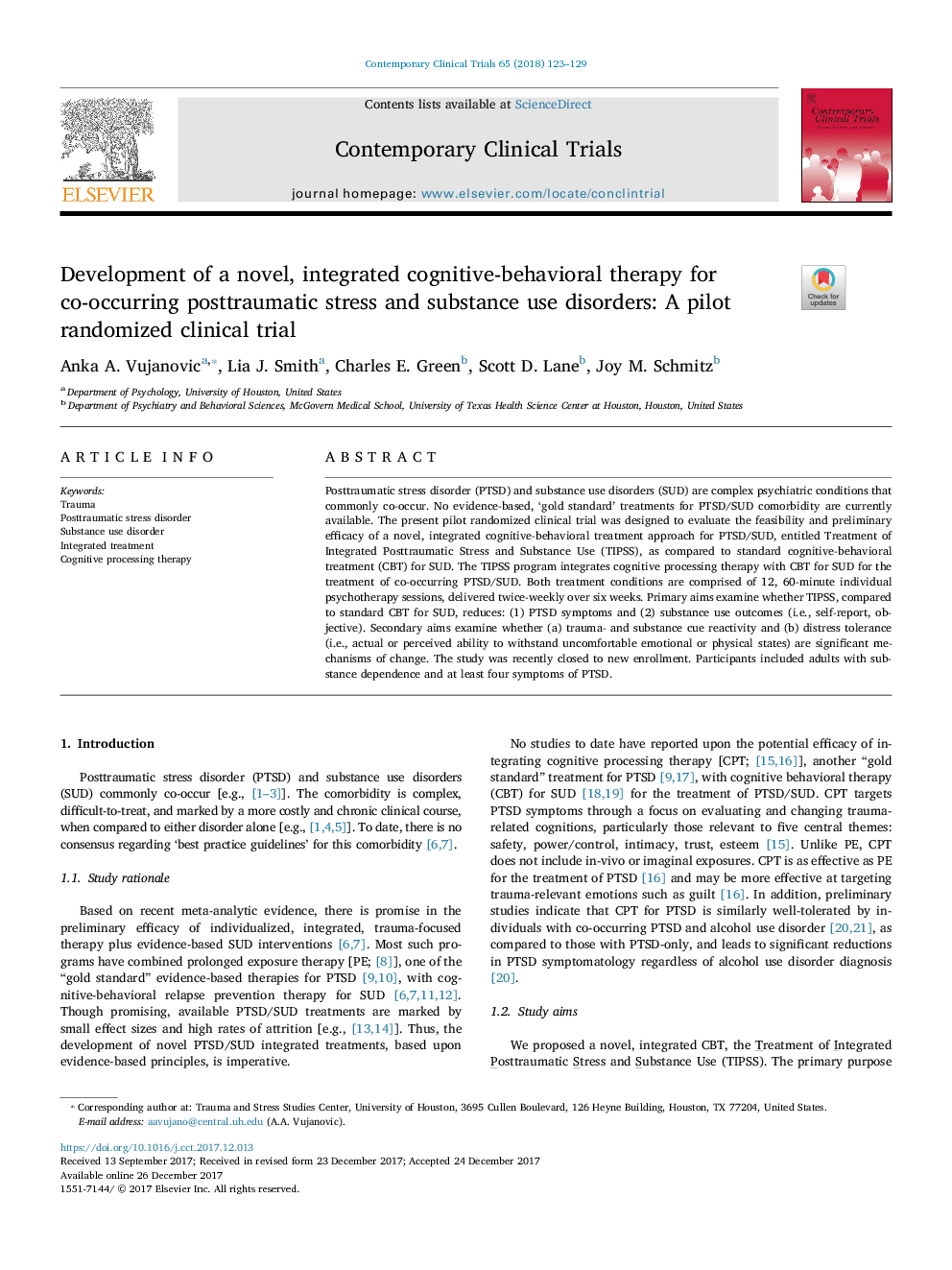ترجمه فارسی عنوان مقاله
توسعه یک رویکرد شناختی- رفتاری یکپارچه برای همکاری استرس پس از سانحه و اختلالات مصرف مواد: یک کارآزمایی بالینی تصادفی
عنوان انگلیسی
Development of a novel, integrated cognitive-behavioral therapy for co-occurring posttraumatic stress and substance use disorders: A pilot randomized clinical trial
| کد مقاله | سال انتشار | تعداد صفحات مقاله انگلیسی |
|---|---|---|
| 115618 | 2018 | 7 صفحه PDF |
منبع

Publisher : Elsevier - Science Direct (الزویر - ساینس دایرکت)
Journal : Contemporary Clinical Trials, Volume 65, February 2018, Pages 123-129
ترجمه کلمات کلیدی
تروما اختلال استرس پس از سانحه، اختلال مصرف مواد درمان مجتمع، درمان پردازش شناختی،
کلمات کلیدی انگلیسی
Trauma; Posttraumatic stress disorder; Substance use disorder; Integrated treatment; Cognitive processing therapy;

